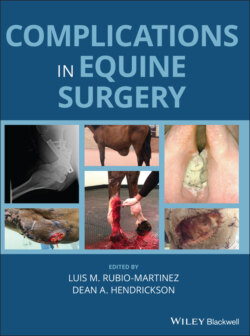Читать книгу Complications in Equine Surgery - Группа авторов - Страница 92
Complications Associated with Administration of Parenteral Nutrition Solutions
ОглавлениеNutritional support is an important adjunct therapy in critically ill patients in equine medicine. Nutrition has been shown to improve wound healing, minimize muscle protein loss, decrease weight loss associated with catabolic patients, and booster immune function in patients where oral feeding is not possible.
Parenteral nutrition is critical for provision of nutrients when enteral feeding is not possible, for example patients with gastrointestinal disease, particularly after colic surgery or esophageal diseases. Neonatal foals have little reserve energy, therefore PN should be considered if feed has to be withheld for >6 hours [58]. Adequate nutrition should particularly be evaluated and assessed in patients with increased metabolic demands, such as in pregnant, lactating and growing animals (foals), or in animals with pre‐existing metabolic diseases or severe illnesses (sepsis, trauma) resulting in catabolism. Obese, over‐conditioned animals, donkeys, ponies and lactating mares are at a particular risk of hyperlipidemia, and nutritional support should be instituted early to prevent this condition.
Complications associated with parenteral nutrition include catheter‐associated complications, metabolic aberrations such as hyperglycemia, hyperlipidemia, electrolyte abnormalities, protein intolerance and overfeeding [59, 60]. An additional aspect to consider is the detrimental effect on the gastrointestinal tract when oral feeding is withheld. Enterocytes need nutrients.
